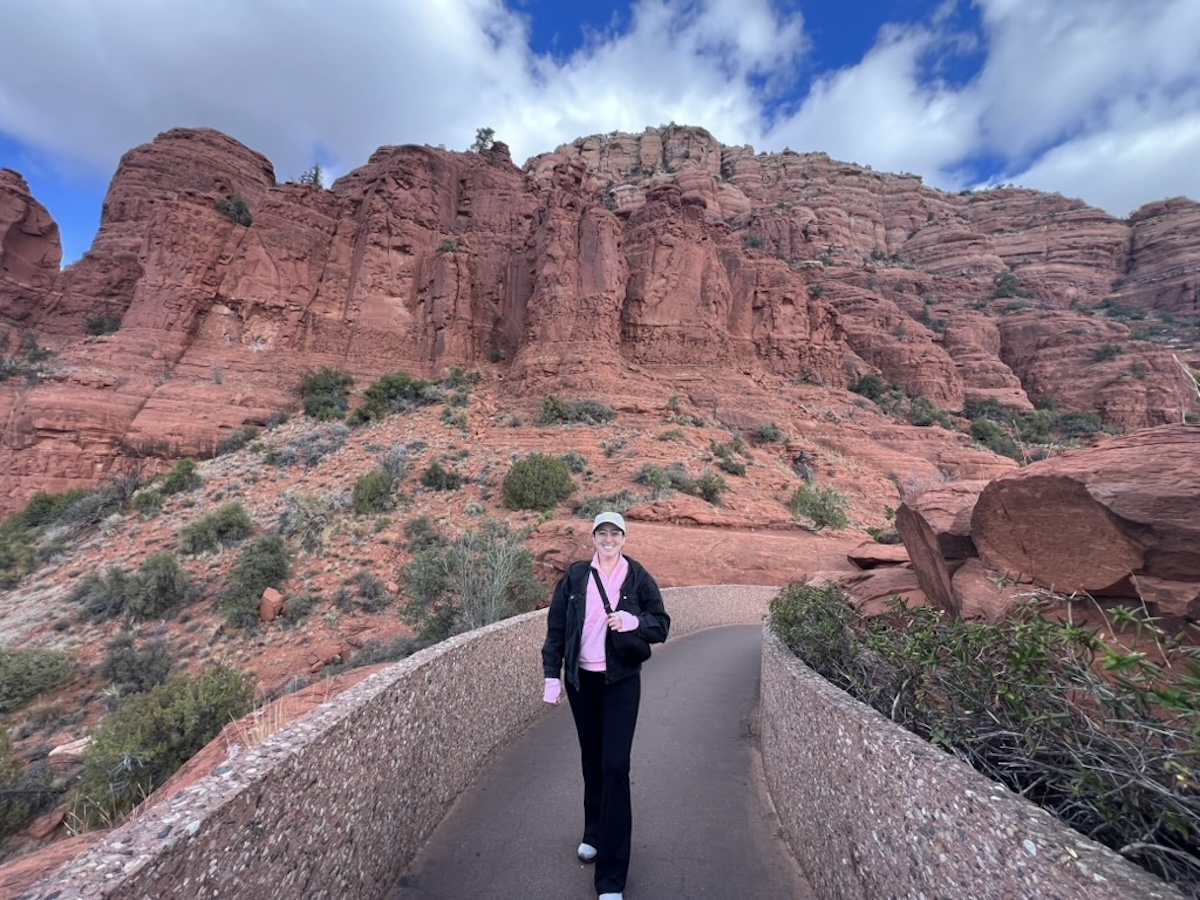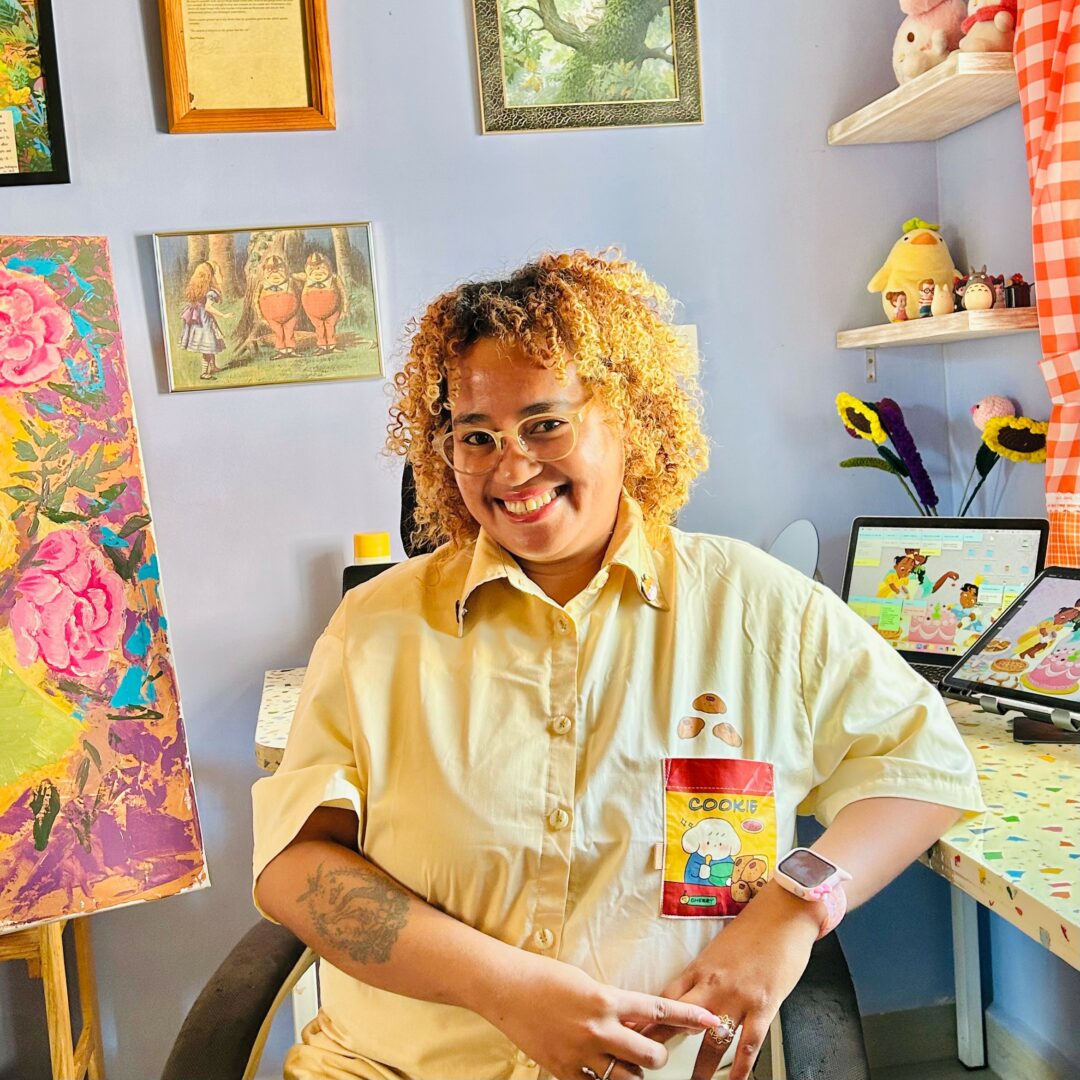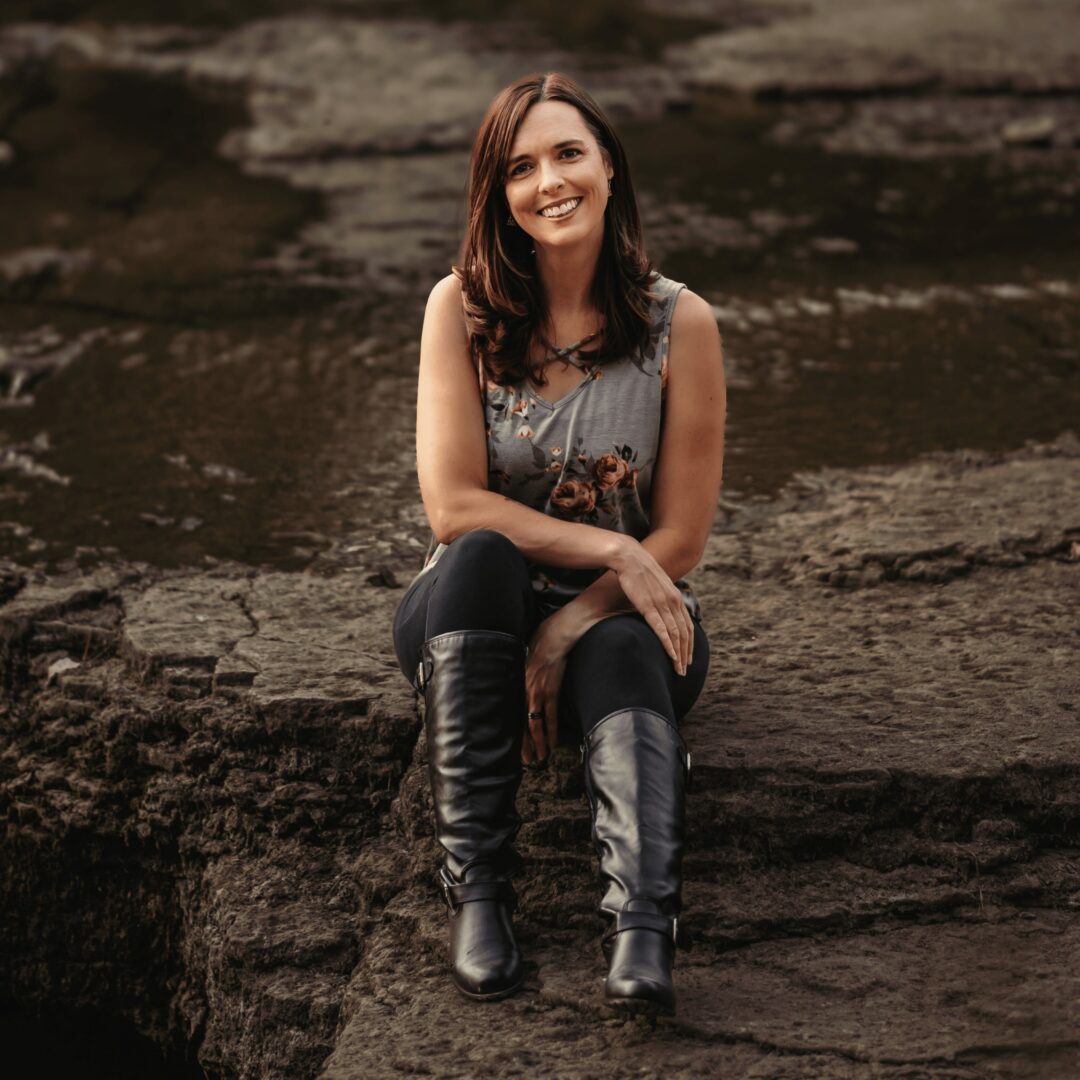We caught up with the brilliant and insightful Ada Goldfeld a few weeks ago and have shared our conversation below.
Ada, so great to have you on the platform and excited to have you share your wisdom with our community today. Communication skills often play a powerful role in our ability to be effective and so we’d love to hear about how you developed your communication skills.
That’s a good question! I’m a teacher and a painter, and so I think a lot about how to communicate clearly to my students, as well as how to use the visual language of painting to get a message across to my viewers.
To me, clear verbal communication is linked to clear writing. For as long as I can remember, I’ve loved to write, but that doesn’t mean I’ve always been particularly good at it. While in college I had the opportunity to take several creative writing courses, and each of my professors pushed me to reconsider the way I communicate. In particular, Michael Downing taught me the power in concise description. He assigned a series of prompts, each of which could have easily elected many pages of writing, but that had to be capped at 250 words. This experience instilled in me the importance of finding the right words to say exactly what you want to express. Nearly fifteen years later, I still think about that class often, and I take it with me wherever I go – especially in my studio and classroom.


Thanks for sharing that. So, before we get any further into our conversation, can you tell our readers a bit about yourself and what you’re working on?
This is an exciting juncture for me – I’ve just moved to Charleston, South Carolina, where I will start teaching at the College of the Charleston in a few weeks. I grew up in New Jersey, moved around the New England for college and graduate school, and spent the past six years in New York City, so this is my first time living outside of the northeast.
For the past few years, I’ve been painting still lifes that relay a specific moment in time – a story described through objects. These stories are often reflective of women’s experiences that would otherwise be dismissed, overlooked, or simply unseen. This summer, a couple of my recent paintings were included in the show, “Choose Your Fighter! II” at Marvin Gardens in Ridgewood, NY. For now, I’m really excited to set up my studio in Charleston and see how the new scenery impacts my practice.


Looking back, what do you think were the three qualities, skills, or areas of knowledge that were most impactful in your journey? What advice do you have for folks who are early in their journey in terms of how they can best develop or improve on these?
One idea I try to impress on my students is the importance of taking risks in your work. The only way to get better at a craft is to push yourself to go in new directions – otherwise, you will never move forward. School is such a valuable arena to explore as many different techniques, concepts, and processes as possible, as you are only making work for yourself and your teachers. Nonetheless, I empathize with how daunting this experience can be. At times, I was an inflexible student. But now, on the other side, I tell my classes – “I know you can do this thing, but I want you to be able to do everything.”
Opening myself up to risk-taking has been so important to my own trajectory, and I’ve felt my most excited to experiment in the studio when I have found artists who are doing things that I wish I could do. Seeing painters from the past or present make moves that I admire has inspired me to go in different directions. In other words, I deeply believed that to make art, you really have to look at art.
No matter what I am making, a third lesson I consistently have to remember is to be patient with my process. Sometimes I only have a limited time to work in my studio, and it’s not enough to get done what I want to accomplish, but I will still rush through to finish a process. This never ends well. My work is always best when I give it the time it requires. Sometimes this means keeping a painting on a wall of my studio for months and months, while I decide what it needs.


What do you do when you feel overwhelmed? Any advice or strategies?
Professionally, I have two full time jobs – one is to paint, and the other is to teach. I could dedicate all of my time to either one, but I also believe that teaching makes me a better artist, while maintaining a studio practice makes me a better professor. And so I am constantly balancing both, aiming to be in my studio as much as feasible and simultaneously teaching a full course load.
While I’ve chosen this path, that doesn’t make it any less challenging. I often feel like I have more to accomplish in a day than is possible. When I’m overwhelmed, I make a checklist on the Notes app of my phone. This isn’t revolutionary, but it’s the only thing that makes me feel calmer. If I can visualize everything that I have to get done and systematically check each one off, I feel more in control.
Contact Info:
- Website: https://www.adagoldfeld.com
- Instagram: https://www.instagram.com/agoldfeld


so if you or someone you know deserves recognition please let us know here.




